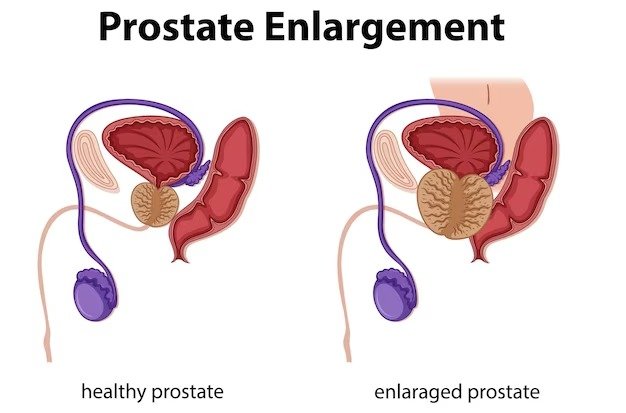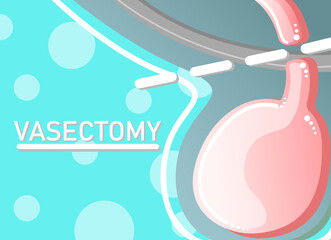Loss of bladder control, or urinating incontinence, is a urology condition that occurs when an individual experiences involuntary urine leakage. This can range from occasional urine leaks when coughing or sneezing to a complete loss of bladder control.
There are several types of urinary incontinence. They are:
- Stress incontinence
- Urge incontinence
- Overflow incontinence
- Functional incontinence
- Mixed incontinence

Is it normal to lose bladder control after surgery?
- Postoperative urinary retention is a common occurrence after surgery, leading to symptoms such as suprapubic pain, bladder spasm, urine leaking, and the inability to urinate.
- Studies conducted by the National Association for Incontinence and WomensHealth.gov reveal that approximately 75-80% of women among the 25 million adult Americans suffer from loss of bladder control.
- Globally, more than 200 million people experience urinary incontinence or loss of bladder control.
- Involuntary urine leakage affects one out of every four women under the age of 18.
- Research from the NCBI shows that while the incidence of urinary incontinence is lower in men compared to women, 40% to 80% of all male patients experience urge incontinence, with 10% of cases being attributed to loss of bladder control after surgery.
Scared? Don't be.
Your health is too important to ignore – schedule your appointment with a specialist now.
When does the bladder get back to normal after surgery?

Many men with prostate surgery complain of loss of bladder control after surgery. For a few days after the surgery, a catheter is placed to control the flow of urine. But once the catheter is removed, most men recover from bladder control loss in a few days. The majority of men who had proper control over their bladder prior to the surgery, regain their bladder control after 3 to 18 months of the surgery.
Very few men gain control of the bladder immediately after surgery, while most men gain control over the bladder over a period of 3 to 18 months after the surgery.
Would you like to know what causes loss of bladder control after surgery? Read on to find out!
Can nerve damage during surgery lead to bladder control problems?

Yes, nerve damage during surgery can lead to loss of bladder control after surgery. A complex system of nerves controls the bladder and signals the brain when it is full. If the nerves get damaged during surgery they are not able to send or receive signals from the brain.
Surgical trauma, positioning during surgery, or anesthesia-related problems can cause nerve damage during the surgery.
What are the possible causes of bladder control problems after surgery?

Bladder control problems after surgery can be caused due to various factors, these include:
Changes and problems in health: The changes in health that can cause loss of bladder control after surgery are:
- Aging
- Bladder infection and constipation
- Congenital problems
- Blocking the Urinary tract due to tumors or kidney stones
- Diabetes
- Obesity
Temporary problems like urinary tract infections or constipation may cause temporary incontinence.
- Nerve damage: The nerves that connect the bladder to the brain may get damaged during the surgery. Hence, the brain can neither send signals nor receive signals. Thus, the bladder is not able to control sudden urination.
- Unhealthy lifestyle habits are also responsible for causing loss of bladder control after surgery. Men and women who eat constipation-causing food, drink alcohol, or take medicines can get urinary incontinence.
- No physical activity can also cause loss of bladder control.
- Prostate problems in men may sometimes require surgery. Loss of bladder control after surgery can be seen in men.
- Prostate cancer treatments like surgery and radiation may lead to nerve damage, and bladder spasms, which may lead to short-term loss of bladder control.
- Health problems or conditions in women that cause the pelvic floor muscles too weak, can make it difficult for the bladder to hold the urine.
Now the question arises, can it be permanent? Read below to find out!
Can loss of bladder control after surgery be permanent?

Urinary incontinence or loss of bladder control after surgery can be a common complication. This happens mostly in surgeries that involve the pelvis or lower abdomen. However, loss of bladder control after surgery is temporary in most cases. It gets resolved over a period of a few days or weeks.
The loss of bladder control after surgery can be permanent in very rare cases. This usually happens due to damage to nerves that carry signals from the bladder to the brain and vice versa. If the spinal cord or nerve roots are damaged during the surgery, control over the bladder is lost. The communication between the bladder and brain is not proper, because the signals cannot be transferred.
It is important for you to know what you can do to manage the problem! Continue reading to discover!
Are there any treatments or exercises that can help with bladder control after surgery?

Yes, there are several treatments and exercises that can help with bladder control after surgery:
- Kegel Exercises: These are exercises that help in strengthening the pelvic floor muscles. This helps in supporting the bladder and controlling the urine flow. Kegel exercises can be done several times a day. You can gradually increase the duration and repetitions over time.

- Bladder training: This involves increasing the duration of subsequent visits to the bathroom. This helps in bladder control and reduces the frequency of urination. Tracking your bathroom habits will gradually help you in increasing the time between visits to the bathroom. With time, your bladder will be trained to hold urine for longer time periods.
- Medications: Mostly anticholinergic drugs are prescribed to treat loss of bladder control after surgery. They help in relaxing the bladder muscles and reduce the urge to urinate. Mirabegron also works in the same way.
- Topical estrogen treatment: These are topical estrogen creams, rings or patches applied in the vagina. They help in toning and rejuvenating the tissues in the urethra or vaginal area.
- Electronic devices like Urethral inserts or pessaries are used to treat loss of bladder control after surgery. These devices act as a plug to prevent urine leakage during heavy activities.
According to Sean Byers, a medical professional and co-founder of Health Reportlive states that-
Pelvic floor exercises, often known as *Kegel* exercises, are a great way
to regain control of your bladder following surgery. The bladder support
muscles can be strengthened by these workouts, allowing for greater bladder
control following surgery. In addition, avoiding constipation, keeping to a
healthy weight, and drinking plenty of water can all help with bladder
control issues. Limiting your consumption of *caffeine* and alcohol can
help, as can avoiding bladder-irritating foods and drinks such as spicy
foods, carbonated drinks, and citrus fruits. In the long run, adjusting
your lifestyle in this way can help you better manage your bladder control
issues and enjoy life after surgery.
Take the first step to recovery. Get in touch with us for your treatment.
How long does it take for bladder control to return after surgery?

It's difficult to provide an exact timeline for when bladder control will return after surgery. Because recovery time can vary widely depending on several factors, as mentioned earlier. However, in general, it can take anywhere from a few days to several weeks or even months for bladder control to return after surgery.
For less invasive surgeries, such as laparoscopic procedures, patients may be able to regain bladder control within a few days to a week after surgery. For more invasive surgeries, such as those that involve the removal of the bladder or prostate, it may take several weeks or even months for bladder control to return.
Keep reading to find out what can be done to prevent urinary incontinence!
Are there any steps that can be taken to prevent loss of bladder control after surgery?

Incorporating lifestyle changes can help in preventing the loss of bladder control after surgery.
- Drink a limited amount of liquid at a fixed time: Limiting the amount of fluid intake before going to bed may help in reducing the nighttime trips to the bathroom. Consult with your doctor about the amount of water you should drink during the daytime to help with bladder control.
- Engage in physical activity: Regular exercise helps you in maintaining your weight and overall good health. Exercise strengthens your muscles around the pelvis and urethra and helps in managing urinary incontinence.
- Avoid smoking: Quitting smoking is always healthy. It is beneficial for your overall health and bladder control. Smoking causes coughing and hence increases your chances of stress incontinence.
What can be done to improve bladder control after surgery?

Other than medications and lifestyle changes, there are a few surgeries and treatment procedures that can help in improving the loss of bladder control after surgery:
- Bulking agents: This is a type of injection that is given to women with stress incontinence. The lining of the urethra is injected with a permanent substance that increases the size of the urethral lining.
- Botox treatment: You might think of it as a cosmetic treatment but it also helps in relaxing the muscles. Injecting Botox into your bladder will help in relaxing its muscles. It reduces the urge to urinate.
- Neuromodulation devices: Devices like pacemakers that stimulate the bladder nerves can be placed to improve bladder control. Stimulating certain nerves near the ankle can also help in achieving better bladder control.
- Sling procedures: Sling procedures can be performed in both men and women to treat loss of bladder control after surgery. In women, the urethral channel is supported by using a synthetic material or strip of their own tissue.
- Artificial urethral sphincter: This device is used to treat stress incontinence in men. This device is placed near the urethra when they are not urinating. This device is mostly used for urine leakages after prostate surgery.
Want to inquire about your personalized treatment expenses? Don't hesitate. Talk to us today.
FAQs

1. Can psychological factors contribute to loss of bladder control after surgery?
Yes, anxiety or stress related to the surgery or hospitalization can lead to temporary loss of bladder control.
2. How can anesthesia affect bladder control after surgery?
Anesthesia can relax the muscles that control urination, which can lead to temporary loss of bladder control.
3. Can the type of anesthesia used during surgery affect bladder control?
Yes, certain types of anesthesia, such as general anesthesia, have been associated with a higher risk of developing loss of bladder control after surgery.
4. What is postoperative urinary retention and how is it related to loss of bladder control?
Postoperative urinary retention is the inability to empty the bladder after surgery, which can lead to overflow incontinence or loss of bladder control.
5. How can postoperative urinary retention be treated?
Treatment options can include medications that stimulate the bladder muscles, catheterization, or even surgery in severe cases.
6. Are men or women more likely to experience loss of bladder control after surgery?
Women are generally more likely to experience loss of bladder control after surgery due to factors such as childbirth and menopause.
7. Can loss of bladder control after surgery be a sign of a more serious medical condition?
Yes, loss of bladder control can be a symptom of a more serious medical condition such as bladder or prostate cancer, or nerve damage.
8. Can physical therapy help with loss of bladder control after surgery?
Yes, pelvic floor physical therapy can be an effective treatment option for loss of bladder control by strengthening the pelvic muscles and improving bladder function.
Reference-
https://www.urologyhealth.org/documents/Product-Store/English/Loss-of-Bladder-Control-Surgery.pdf
https://www.med.umich.edu/1libr/Gyn/BirthCenterPostpartum/BladderAfterOutpatientSurgery.pdf







